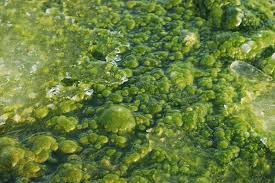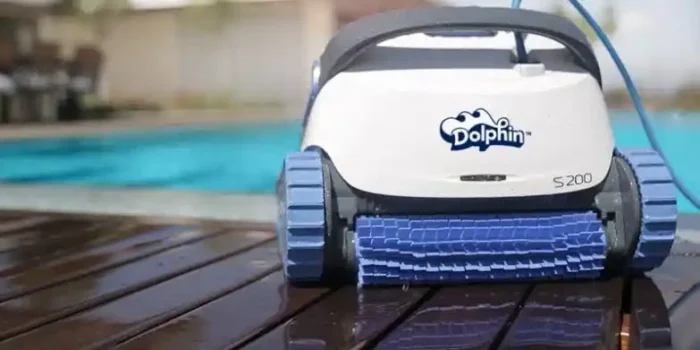
Don’t Let Algae Take Over Your Pool: Can a Vacuum Do the Job?
As a pool owner, keeping your pool clean and well-maintained is crucial to ensure a healthy swimming environment.
One of the most common issues faced by pool owners is the growth of algae in their pools. Not only is it unsightly, but it can also pose health risks to swimmers.
In this article, we will discuss the causes of algae growth, the dangers it poses, and whether a pool vacuum can help remove it.
Introduction to Pool Maintenance
Maintaining a pool requires time, effort, and dedication. Regular cleaning and upkeep are necessary to keep the pool water clean and safe for swimming.
Neglecting pool maintenance can lead to a host of problems, including algae growth, bacterial infections, and equipment damage.
Pool maintenance involves several tasks, including maintaining proper chemical levels, cleaning the pool filter, skimming the surface for debris, and brushing the walls and floor of the pool.
Regular maintenance can help prevent algae growth and keep your pool looking clean and inviting.
What is Algae and How Does it Form in Pools?

Algae are microscopic aquatic plants that thrive in warm, sunny environments. They can grow rapidly in stagnant water, including swimming pools.
Algae growth is typically caused by a combination of factors, including warm temperatures, sunlight, and an imbalance of chemicals in the pool.
Algae can also be introduced into the pool by swimmers, pets, and equipment. Once algae spores are introduced into the pool, they can multiply quickly and form unsightly green, yellow, or black patches on the walls and floor of the pool.
The Dangers of Having Algae in Your Pool
Algae growth can pose several health risks to swimmers, including skin and eye irritation, respiratory problems, and infections. Algae can also make the pool water slippery and increase the risk of falls and injuries.
In addition to health risks, algae growth can also damage pool equipment and surfaces. Algae can clog pool filters, reduce water circulation, and cause damage to pool tiles and grout. If left untreated, algae growth can be costly and time-consuming to remove.
Can a Pool Vacuum Help Remove Algae?
A pool vacuum is a valuable tool in pool maintenance and can help remove algae from your pool. However, not all pool vacuums are created equal, and some may not be effective in removing algae.
There are two main types of pool vacuums – manual and automatic. Manual vacuums require manual effort to operate and are typically less expensive than automatic vacuums. Automatic vacuums operate independently and are more efficient in cleaning larger pools.
Understanding the Different Types of Pool Vacuums

Manual pool vacuums come in two main types – handheld and pole-mounted. Handheld vacuums are typically used for spot-cleaning and require manual effort to operate. Pole-mounted vacuums are attached to a telescoping pole and are used for cleaning larger areas of the pool.
Automatic pool vacuums are available in three main types – suction-side, pressure-side, and robotic. Suction-side vacuums use the pool’s circulation system to create suction and remove debris.
Pressure-side vacuums use the pool’s pressure system to propel the vacuum and remove debris. Robotic vacuums operate independently and use an internal motor to clean the pool.
How to Properly Vacuum a Pool to Remove Algae

To properly vacuum a pool to remove algae, you will need to follow these steps:
- Brush the walls and floor of the pool to loosen any algae growth.
- Attach the vacuum head to the telescoping pole and connect it to the vacuum hose.
- Turn on the pool pump and submerge the vacuum head and hose into the pool.
- Slowly move the vacuum head along the walls and floor of the pool, using a back-and-forth motion to ensure thorough cleaning.
- Once you have vacuumed the entire pool, turn off the pump and disconnect the vacuum hose and head.
Preventing Algae Growth in Your Pool
Preventing algae growth in your pool requires regular maintenance and proper chemical balance. Here are some tips to prevent algae growth:
- Maintain proper chemical levels, including pH, chlorine, and alkalinity.
- Use a pool cover to reduce sunlight exposure and prevent debris from entering the pool.
- Skim the surface of the pool regularly to remove debris and prevent algae formation.
- Brush the walls and floor of the pool regularly to prevent algae growth.
Other Methods for Removing Algae from Your Pool
In addition to using a pool vacuum, there are other methods for removing algae from your pool. These include:
- Shocking the pool with a high dose of chlorine to kill off algae spores.
- Using an algaecide to kill off existing algae growth.
- Draining and refilling the pool, which is a drastic measure but may be necessary in severe cases of algae growth.
When to Seek Professional Help for Your Pool’s Algae Problem
If you have a severe case of algae growth in your pool, or if you are unsure how to properly clean your pool, it may be necessary to seek professional help.
A pool professional can assess the condition of your pool and recommend the best course of action for removing algae and restoring the pool to a healthy state.
Best pool vacuum cleaners
If you are in the market for a pool vacuum, consider the following options:
- Dolphin Nautilus CC Plus Robotic Pool Cleaner
- Hayward Poolvergnuegen The Pool Cleaner
- Polaris Vac-Sweep 360 Pressure Side Pool Cleaner
- Water Tech Pool Blaster Max CG Cordless Rechargeable Pool Cleaner.
These pool vacuums are highly rated and can efficiently remove algae from your pool.
Conclusion
Algae growth in your pool can be a frustrating and potentially dangerous problem. While a pool vacuum can help remove algae, it is essential to understand the different types of vacuums and how to properly use them.
Regular maintenance and proper chemical balance can help prevent algae growth and keep your pool looking clean and inviting. If you are unsure how to handle an algae problem in your pool, seek professional help to ensure the safety of your swimmers and the longevity of your pool.

